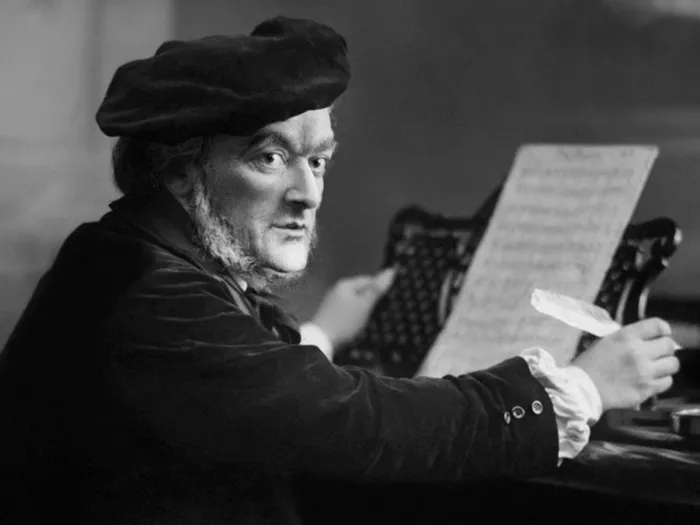Western classical music stands as a testament to the depth and richness of human creativity, spanning centuries of artistic innovation and cultural evolution. From the intricate compositions of Johann Sebastian Bach to the symphonic masterpieces of Ludwig van Beethoven and the operatic brilliance of Wolfgang Amadeus Mozart, this genre has captivated audiences worldwide with its emotional depth, technical prowess, and enduring legacy. In this comprehensive guide, we delve into the world of Western classical music, exploring its history, key composers, major genres, and enduring influence on contemporary music.
A Brief History of Western Classical Music
The roots of Western classical music can be traced back to the sacred chants and monophonic melodies of the medieval era. Gregorian chant, with its serene and ethereal quality, laid the foundation for the development of polyphony and the rise of instrumental music during the Renaissance period. Composers like Guillaume de Machaut and Giovanni Pierluigi da Palestrina were instrumental in shaping the early forms of Western classical music, with their works reflecting a blend of religious devotion and artistic expression.
The Baroque era ushered in a period of flourishing creativity, marked by the ornate compositions of Johann Sebastian Bach, George Frideric Handel, and Antonio Vivaldi. Bach’s intricate fugues, Handel’s majestic oratorios, and Vivaldi’s vibrant concertos exemplified the technical virtuosity and emotional depth of Baroque music, laying the groundwork for the emergence of new musical forms and styles.
The Classical period witnessed a shift towards clarity, balance, and structural elegance, embodied in the symphonies, sonatas, and chamber music of Wolfgang Amadeus Mozart, Joseph Haydn, and Ludwig van Beethoven. Mozart’s melodic genius, Haydn’s innovative use of form, and Beethoven’s revolutionary spirit redefined the boundaries of musical expression, paving the way for the Romantic era’s passionate intensity and exploration of human emotions.
The 19th century Romantic composers, including Franz Schubert, Frederic Chopin, Franz Liszt, and Pyotr Ilyich Tchaikovsky, embraced themes of love, nature, and the sublime, creating deeply emotive works that resonated with audiences on a profound level. The orchestral grandeur of Richard Wagner, the lyrical poetry of Johannes Brahms, and the nationalistic fervor of composers like Antonín Dvořák and Bedřich Smetana further diversified the landscape of Western classical music, reflecting the cultural and political currents of the time.
The 20th century witnessed a period of experimentation and innovation, with composers like Igor Stravinsky, Arnold Schoenberg, and Claude Debussy pushing the boundaries of tonality, form, and expression. The rise of impressionism, expressionism, serialism, and minimalism brought new textures, harmonies, and techniques to the forefront, challenging traditional conventions and expanding the sonic possibilities of classical music.
Key Composers and Their Contributions
Johann Sebastian Bach (1685-1750): Renowned for his mastery of counterpoint and harmonic intricacy, Bach’s compositions, including the Brandenburg Concertos, Mass in B minor, and Well-Tempered Clavier, continue to inspire musicians and audiences alike with their structural complexity and spiritual depth.
Wolfgang Amadeus Mozart (1756-1791): A child prodigy and prolific composer, Mozart’s genius shines through in works such as the Symphony No. 40, The Marriage of Figaro, and the Requiem, showcasing his gift for melody, dramatic flair, and innovative orchestration.
Ludwig van Beethoven (1770-1827): A titan of classical music, Beethoven’s symphonies, piano sonatas, and string quartets, including the Fifth Symphony, Moonlight Sonata, and Late String Quartets, revolutionized the art form with their emotional intensity, structural innovation, and thematic development.
Franz Schubert (1797-1828): Known for his lyrical melodies and poignant song cycles, Schubert’s compositions, such as the “Trout” Quintet, Symphony No. 8 (Unfinished), and Winterreise, capture the essence of Romanticism with their expressive depth and introspective beauty.
Pyotr Ilyich Tchaikovsky (1840-1893): A master of orchestration and melody, Tchaikovsky’s ballets, including Swan Lake, The Nutcracker, and Sleeping Beauty, as well as his symphonies and concertos, exemplify his ability to evoke emotion and create captivating musical narratives.
Igor Stravinsky (1882-1971): A pioneering figure in 20th-century music, Stravinsky’s ballets, such as The Rite of Spring and Petrushka, challenged traditional tonality and rhythmic conventions, ushering in the era of modernism with their innovative use of dissonance, polyrhythm, and primitivism.
Major Genres in Western Classical Music
Symphony: A large-scale orchestral work typically consisting of multiple movements, the symphony has been a cornerstone of Western classical music since the Classical period, with composers like Haydn, Mozart, Beethoven, and Mahler expanding its scope and expressive range.
Opera: A theatrical art form combining music, drama, and staging, opera has produced iconic works such as Mozart’s The Magic Flute, Verdi’s La Traviata, Wagner’s Der Ring des Nibelungen, and Puccini’s La Bohème, showcasing the power of music to convey emotion and narrative.
Chamber Music: Intimate compositions for small ensembles, including string quartets, piano trios, and sonatas, chamber music allows for nuanced interaction between musicians and highlights the intricacies of musical dialogue and expression.
Concerto: A showcase for soloists accompanied by an orchestra, the concerto genre, exemplified by works like Beethoven’s Piano Concerto No. 5 (Emperor), Tchaikovsky’s Violin Concerto, and Rachmaninoff’s Piano Concerto No. 2, highlights virtuosity, musical dialogue, and collaboration between soloist and ensemble.
Choral Music: Vocal compositions for choirs, ranging from sacred motets and oratorios to secular madrigals and cantatas, choral music has a rich tradition dating back to the Renaissance and continues to inspire audiences with its harmonies, texts, and emotional resonance.
Conclusion
Despite the evolution of musical styles and genres, Western classical music remains a vibrant and influential force in contemporary culture. Its timeless melodies, harmonic richness, and expressive depth continue to inspire composers, performers, and listeners across the globe. From film scores and advertising jingles to concert halls and music education, classical music’s impact transcends boundaries and continues to resonate with audiences of all ages and backgrounds.
In conclusion, Western classical music stands as a testament to human creativity, passion, and artistic achievement. Its diverse repertoire, iconic composers, and enduring legacy ensure that it will continue to enrich our lives and inspire future generations of musicians and music lovers for years to come.

